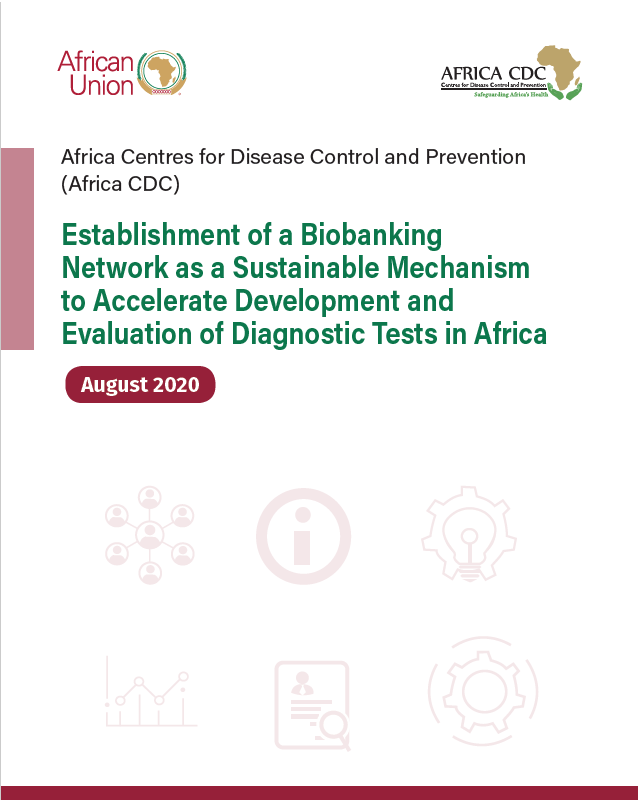Purpose of the the Biobanking Network: Outbreaks of infectious diseases are occurring with increasing frequency and unpredictability. The rapid development and deployment of diagnostics that can accurately and quickly identify pathogens as part of epidemic preparedness is essential, including now for the COVID-19 pandemic. Although the past two decades have seen rapid advances in diagnostic technologies, access to well-characterized specimens remains a significant barrier to test development and evaluation in Africa.
Nevertheless, the past ten years have seen investment to build highquality sustainable biorepositories within the continent. To accelerate access to quality-assured diagnostics in Africa nations, the Africa Centres for Disease Control and Prevention (Africa CDC) has launched the African Collaborative Initiative to Advance Diagnostics (AFCAD).
Under the initiative, Africa CDC proposes to build on existing structures to establish a network of biobanks that facilitate and accelerate the development, evaluation and research on the diagnostics required for disease control and prevention programmes in the region.
The current document presents a sustainable model for a regional network of country-owned biobanks incorporating standardized methods for collection, characterization and archiving of specimens, and characterization of isolates to facilitate and accelerate diagnostics development and evaluation for COVID-19 and other diseases of epidemic potential. The Biobanking Network should be managed according to the guiding principles of transparency, equitable access,
ethics, and respect for national laws that support country ownership and sustainability. By adapting the Nagoya Protocol on access to genetic resources and the fair and equitable sharing of benefits arising from their utilization to the convention on biological diversity,1 sharing of specimens from national biobanks can be rewarded through mechanisms such as equitable access to diagnostics.
